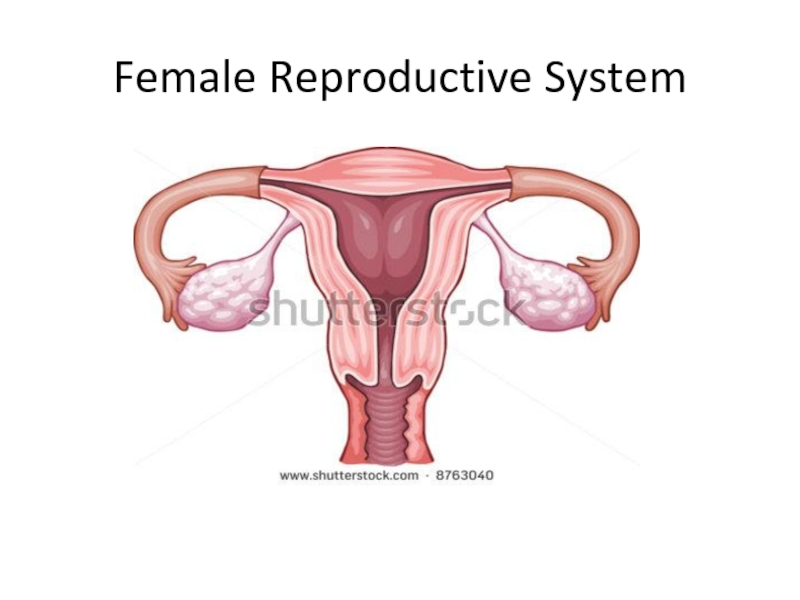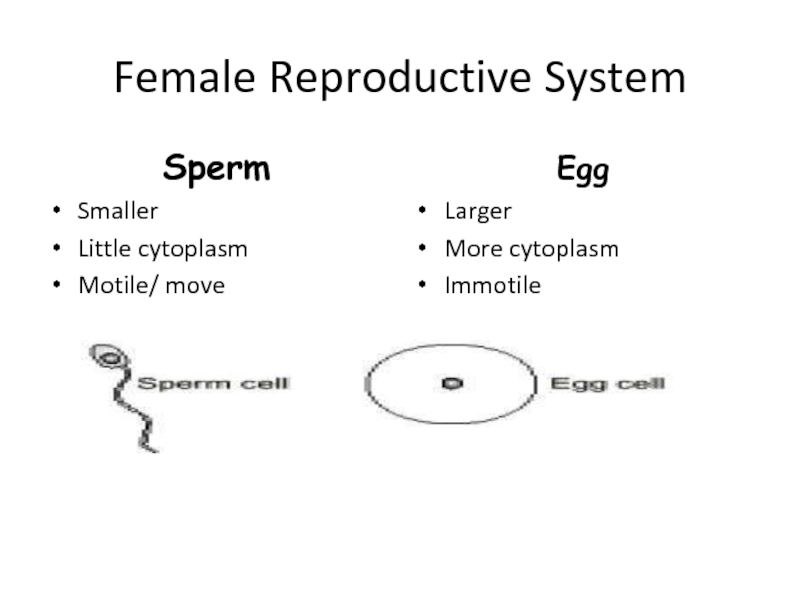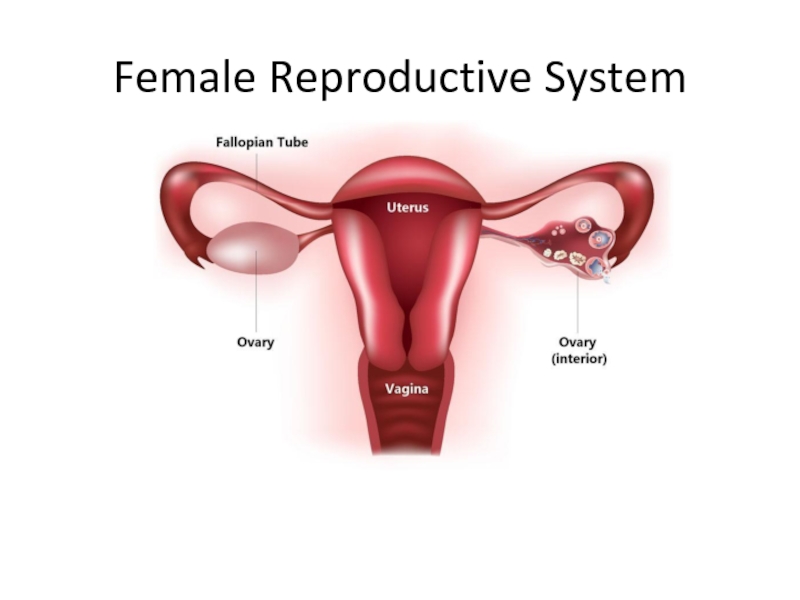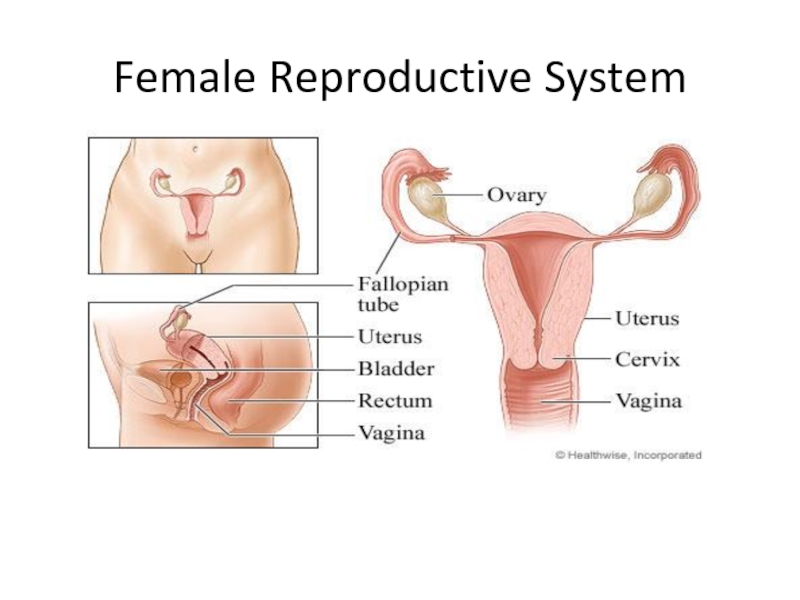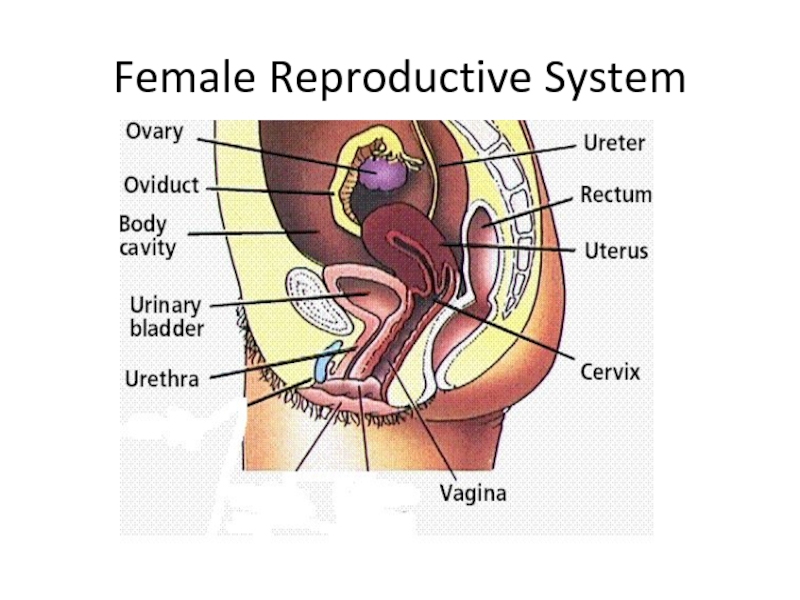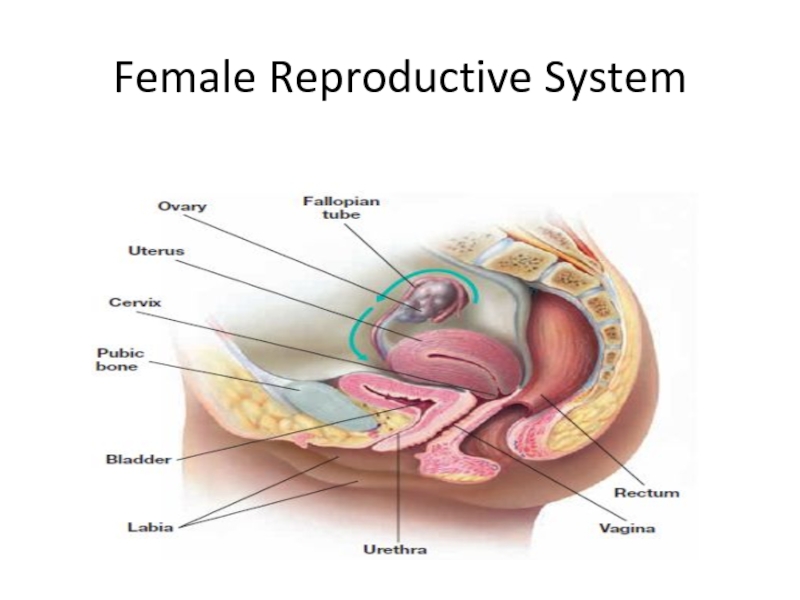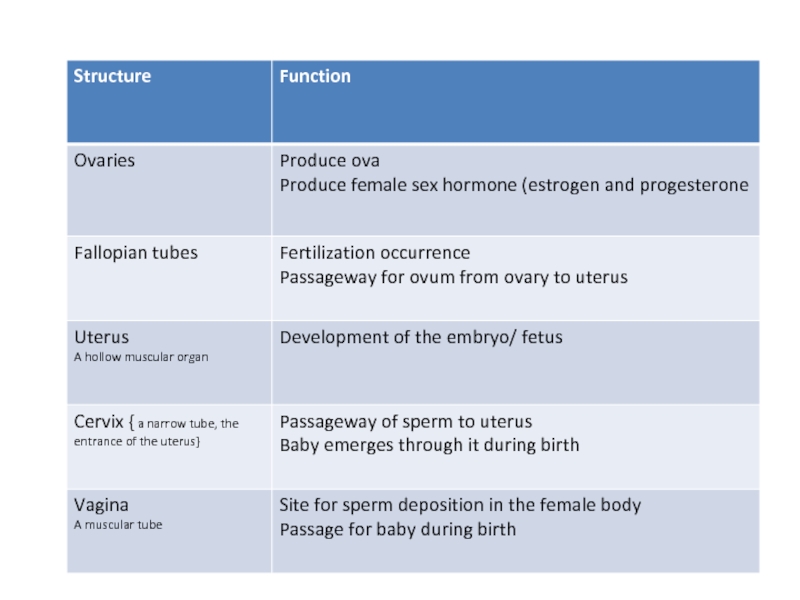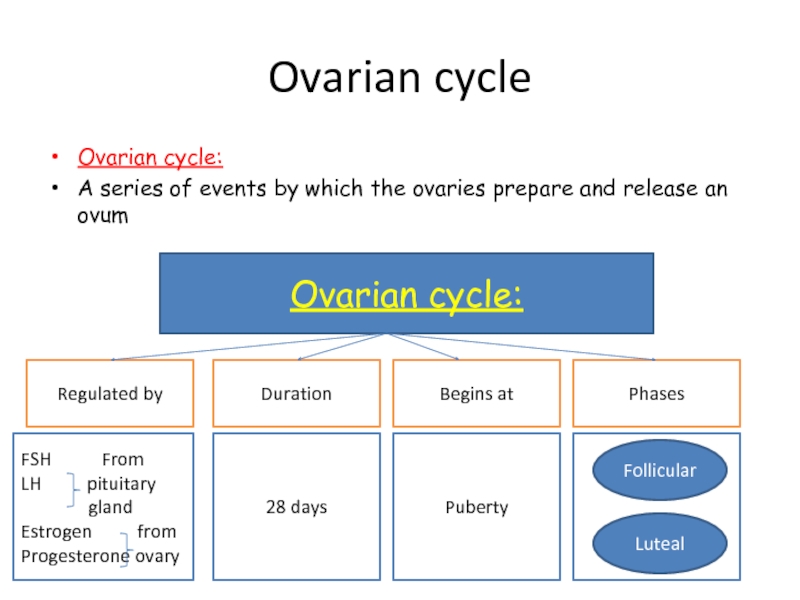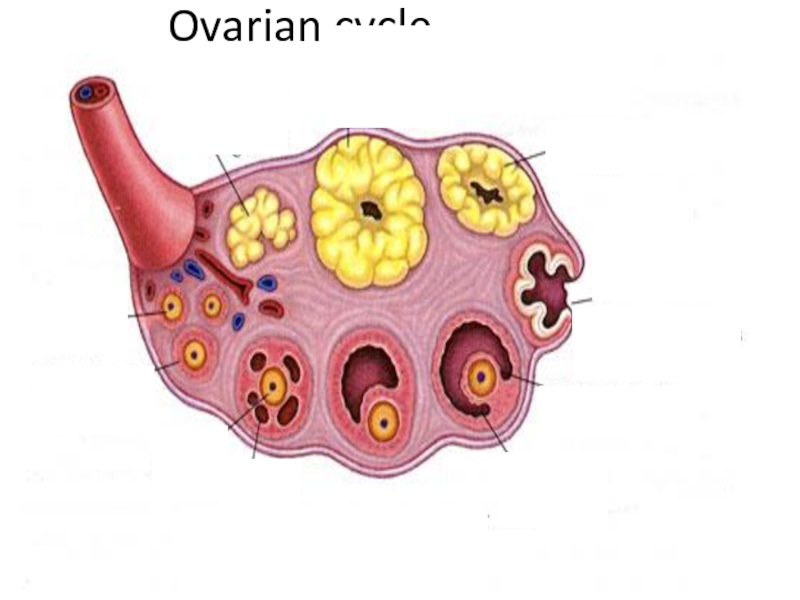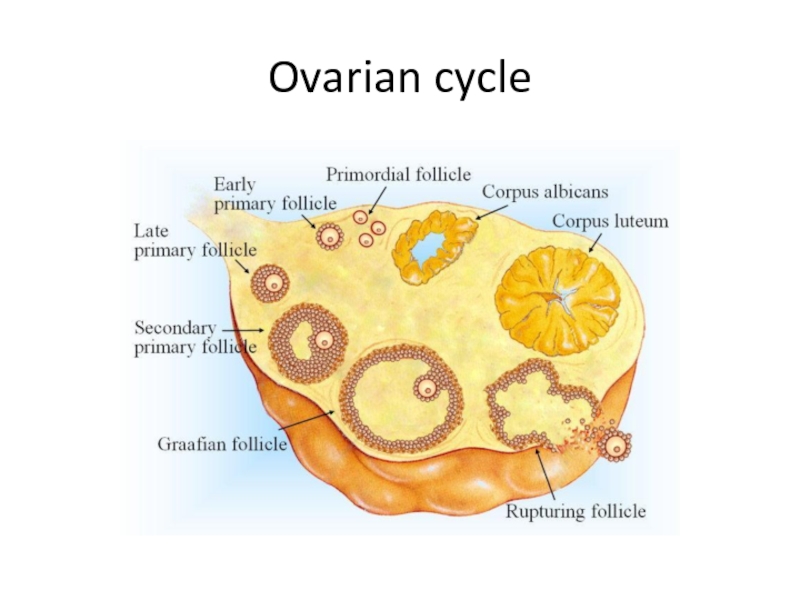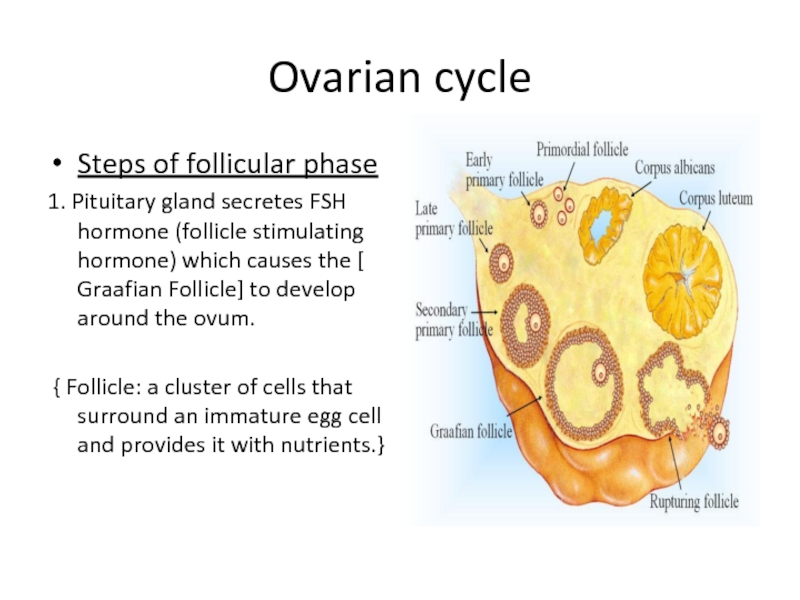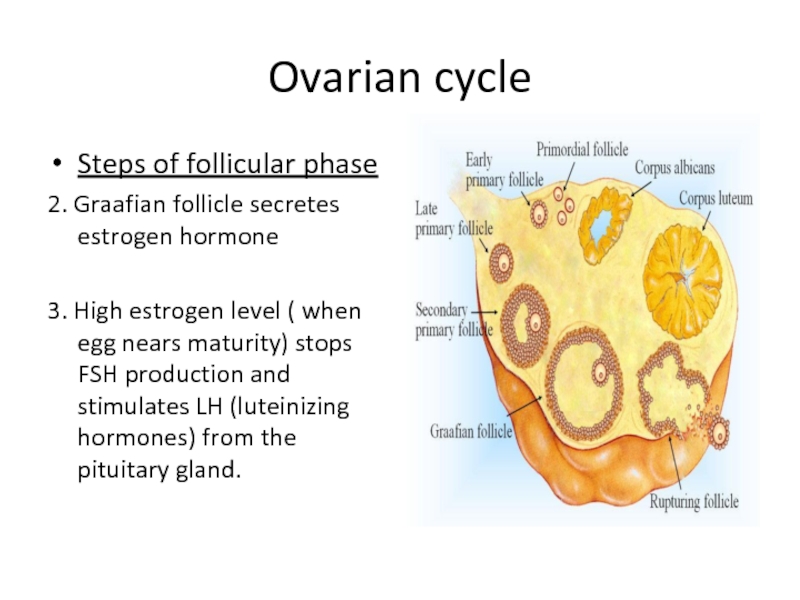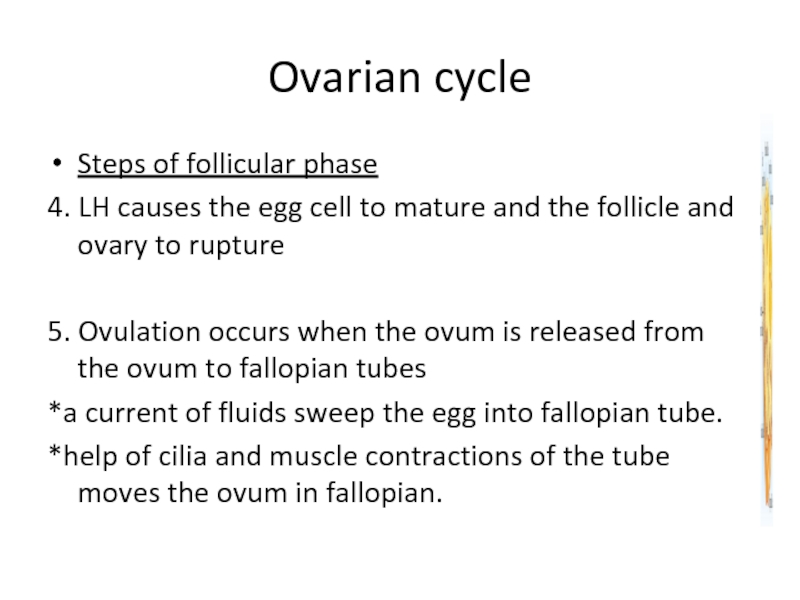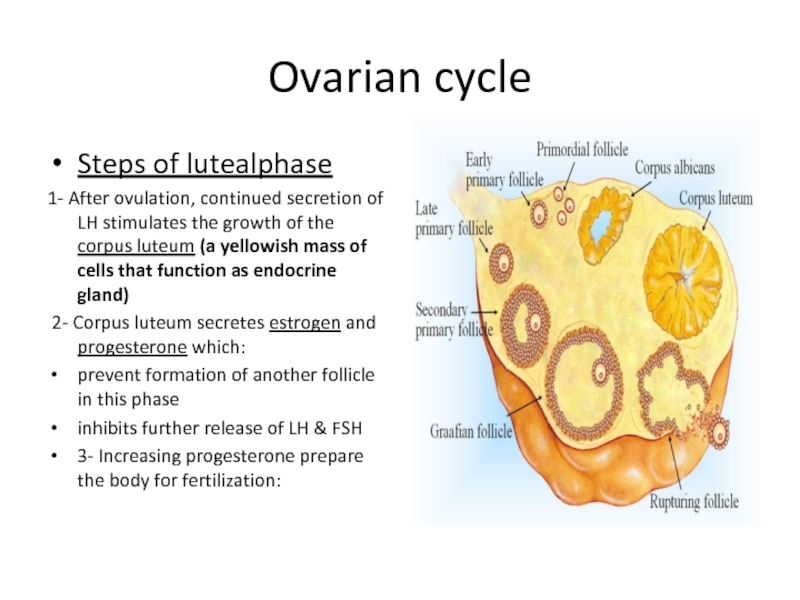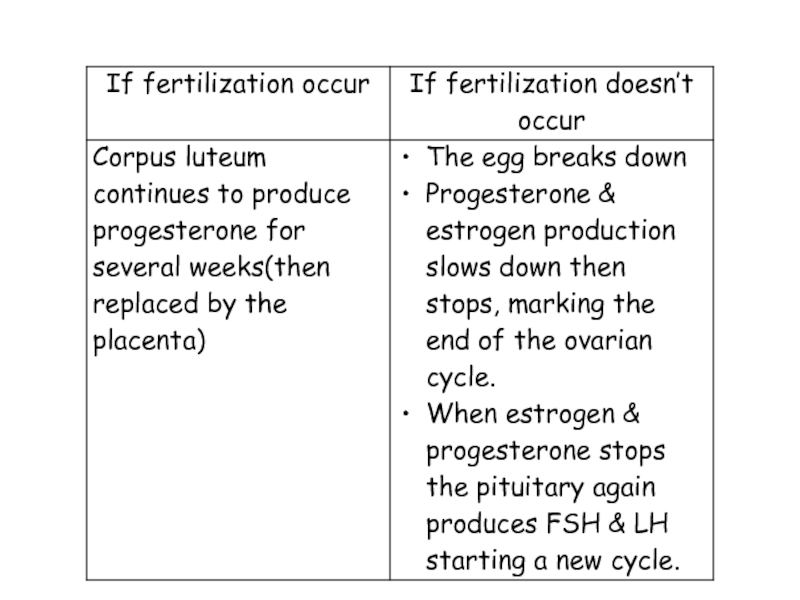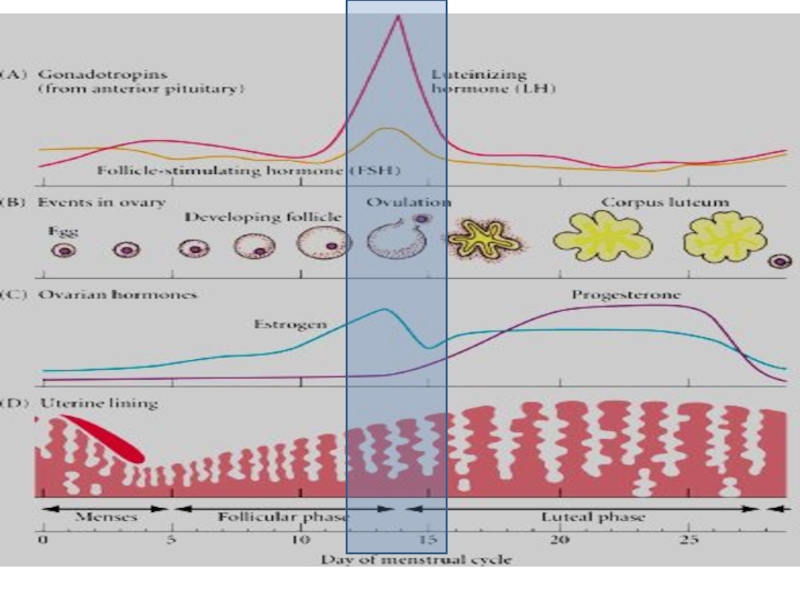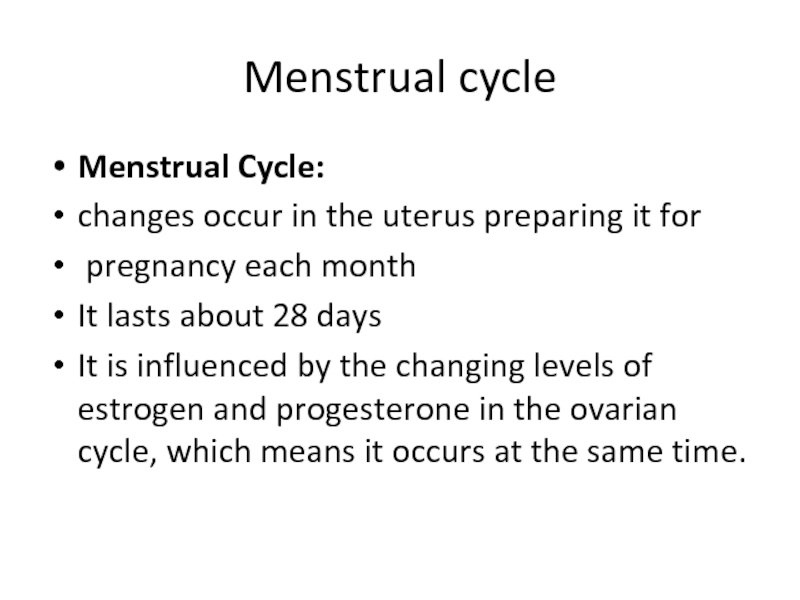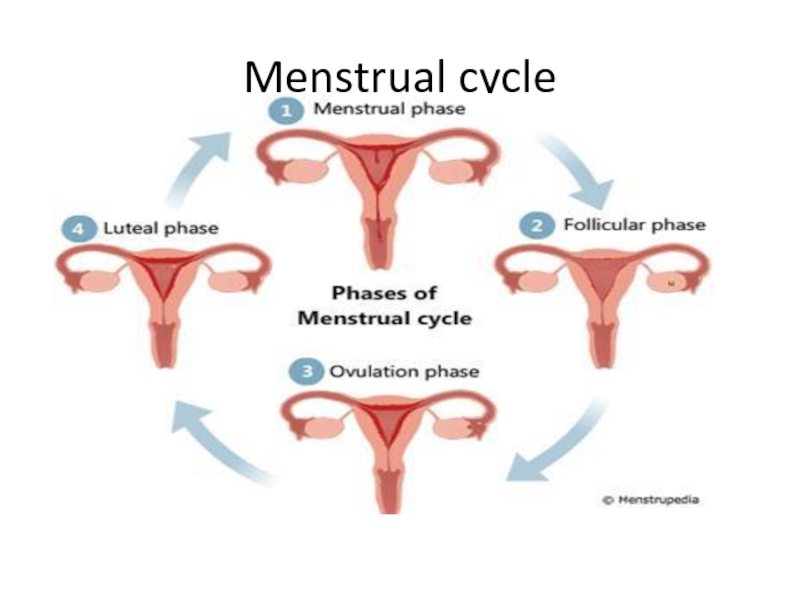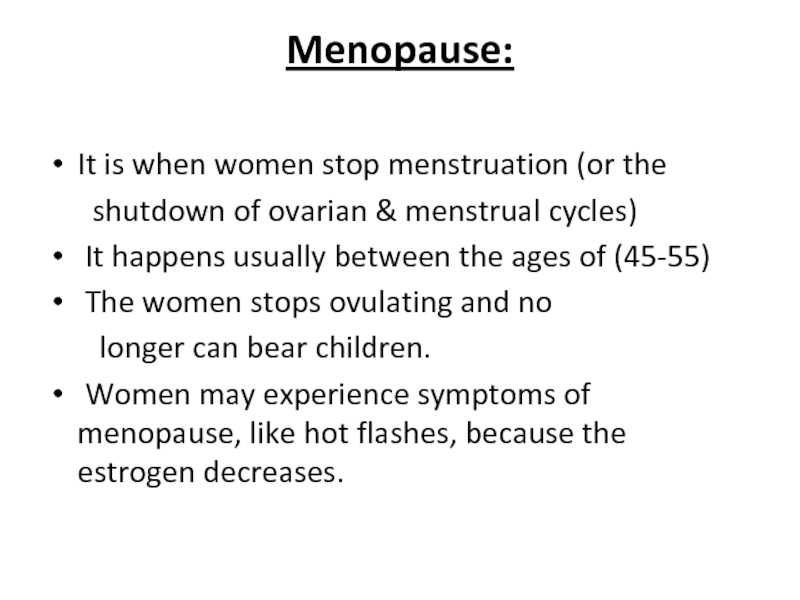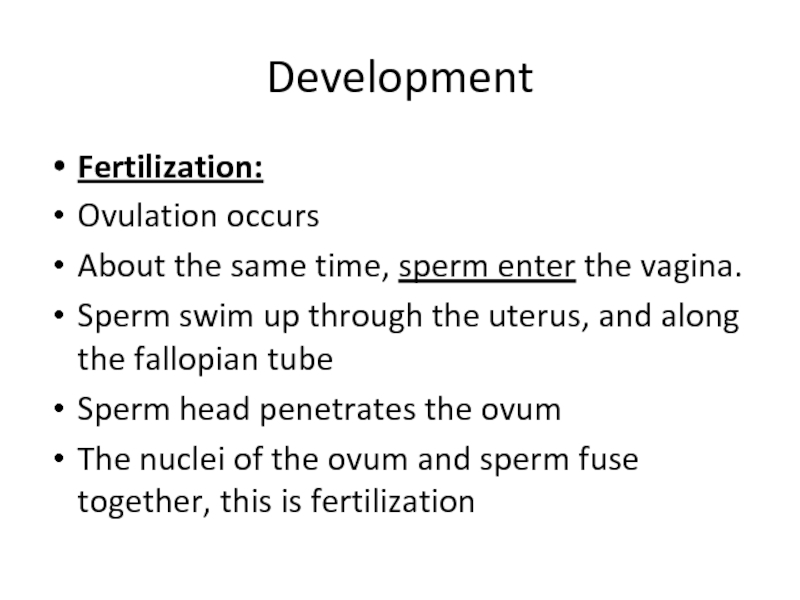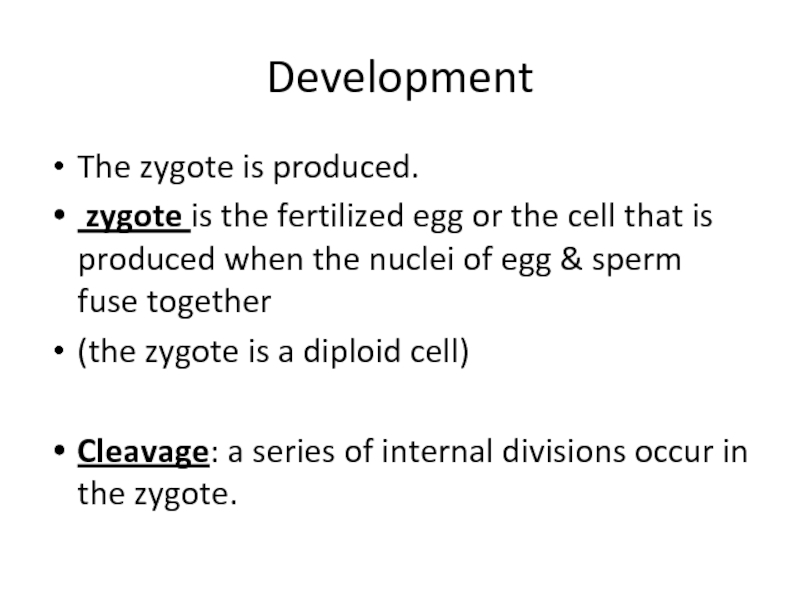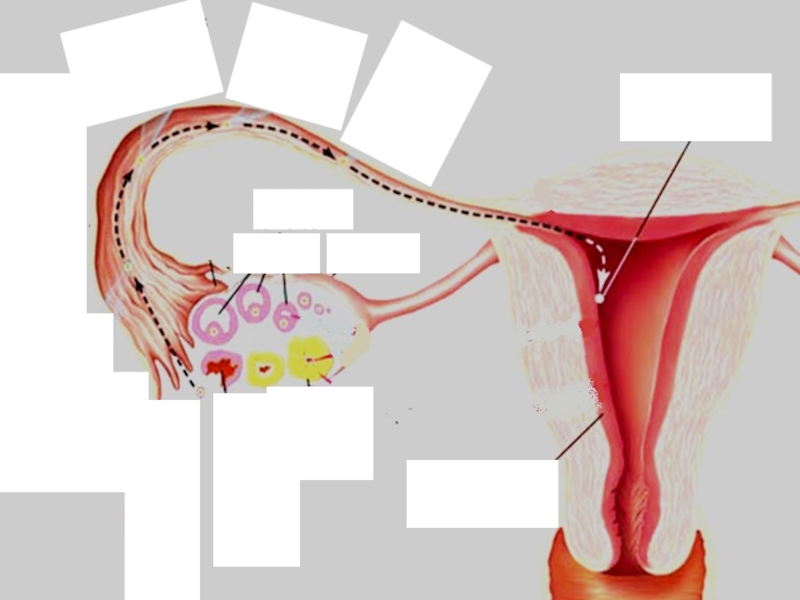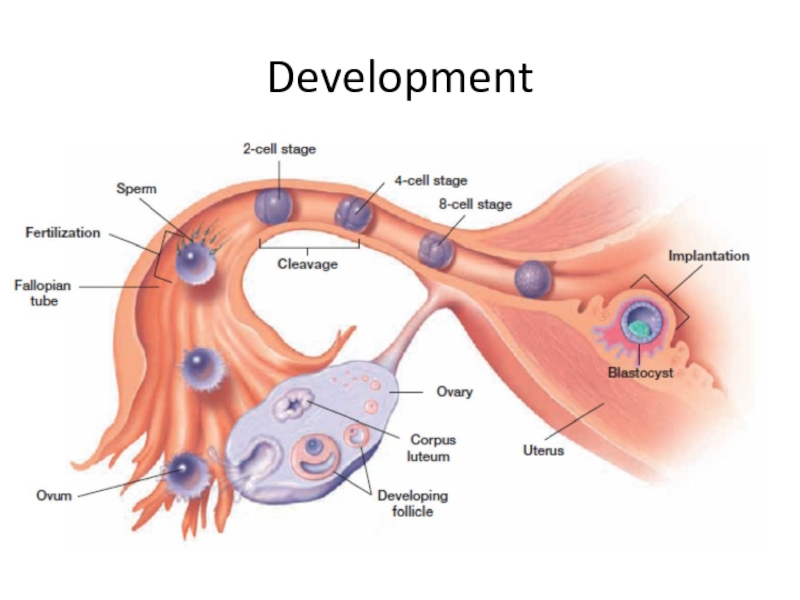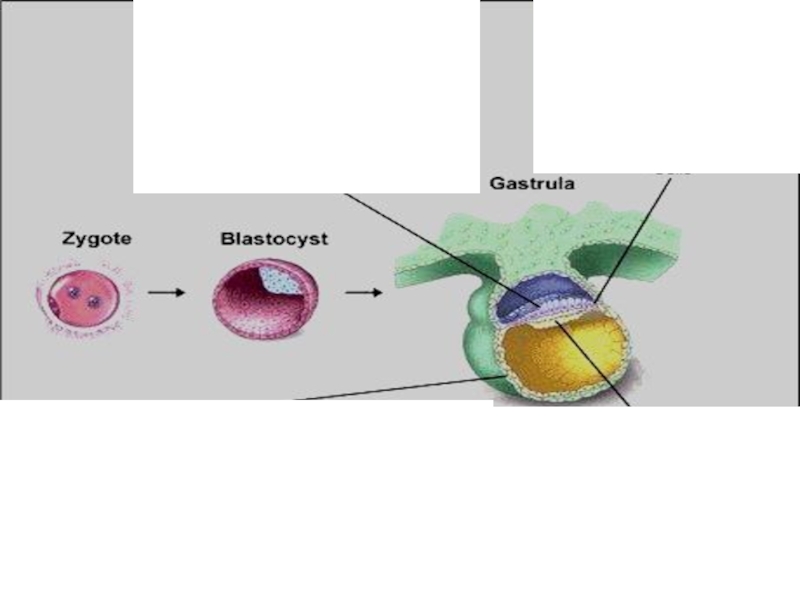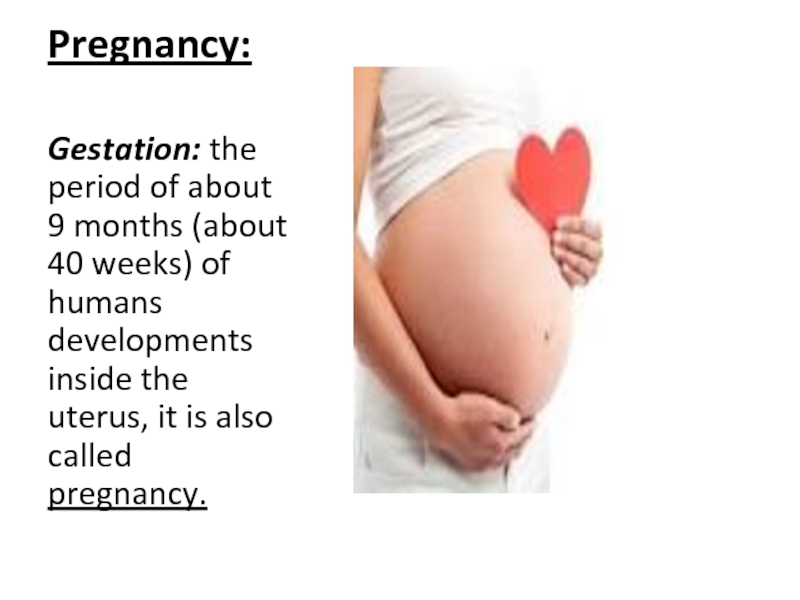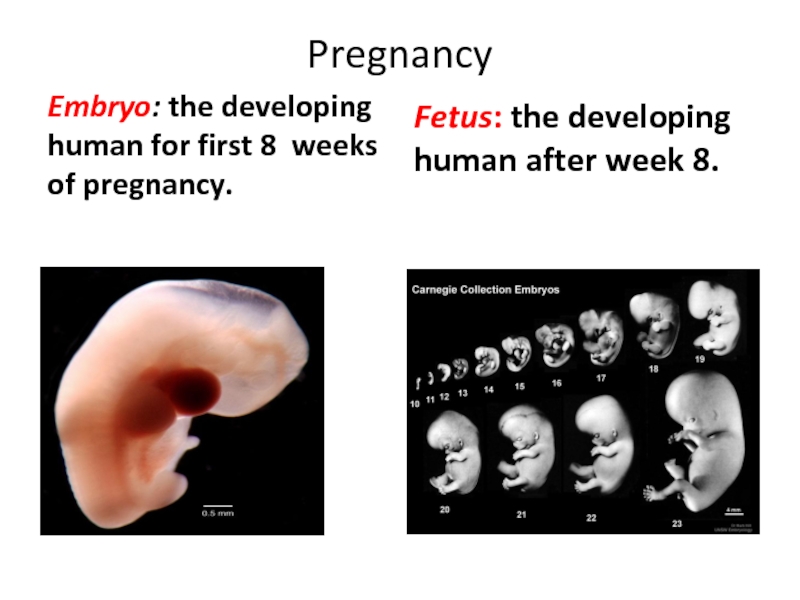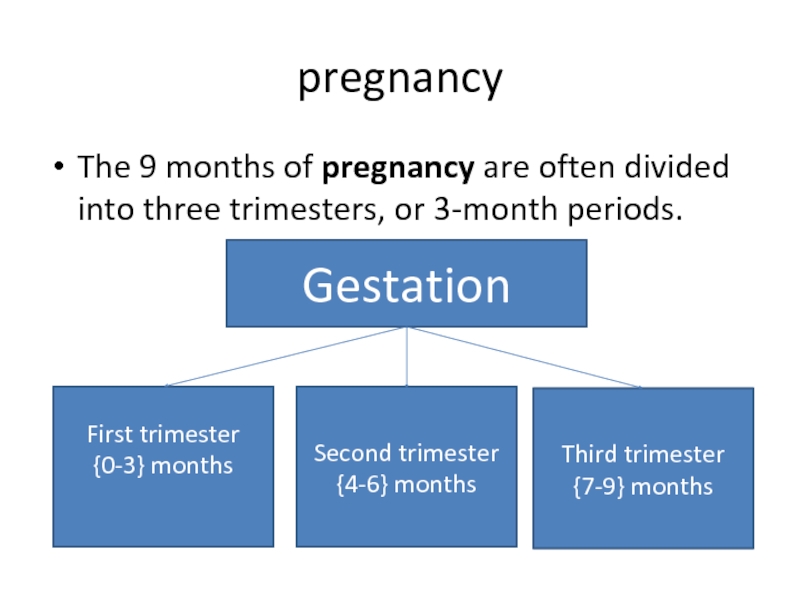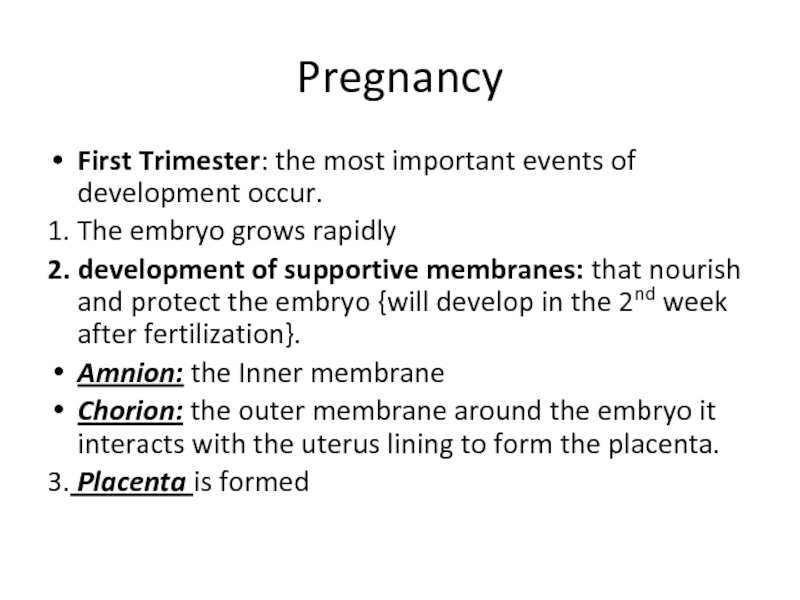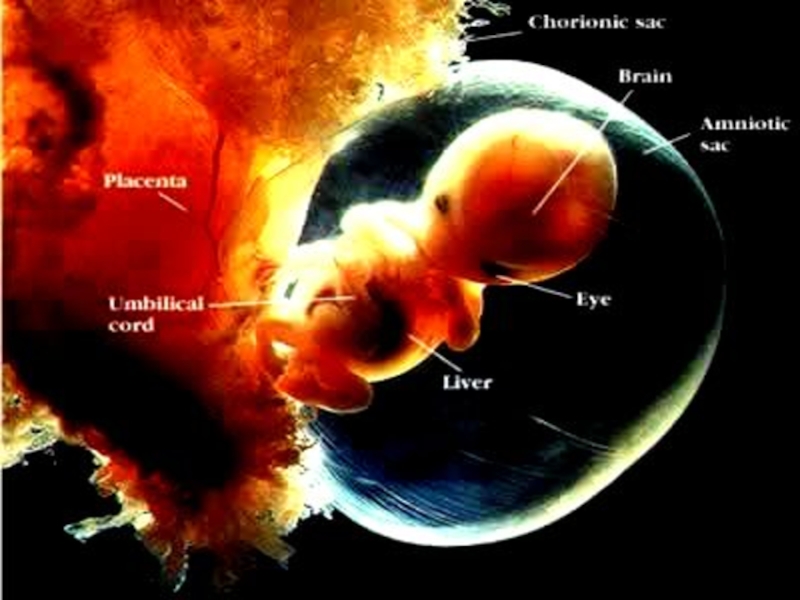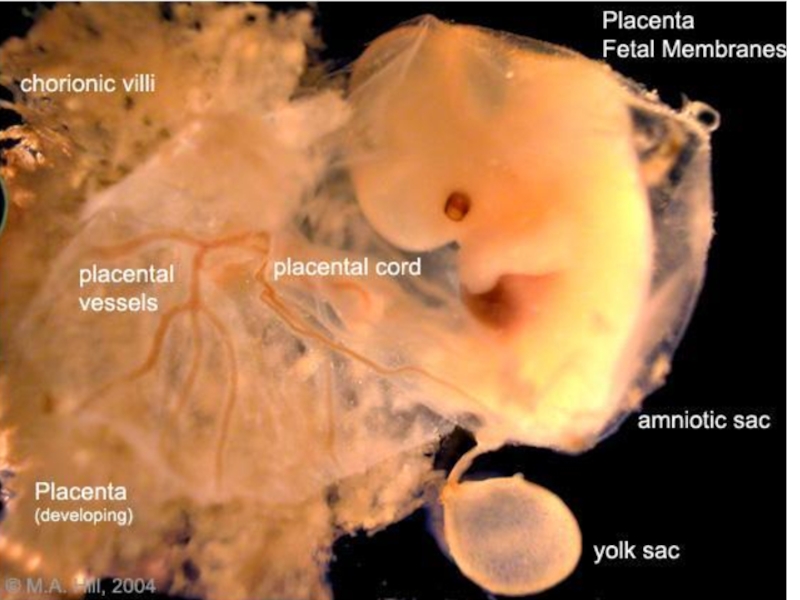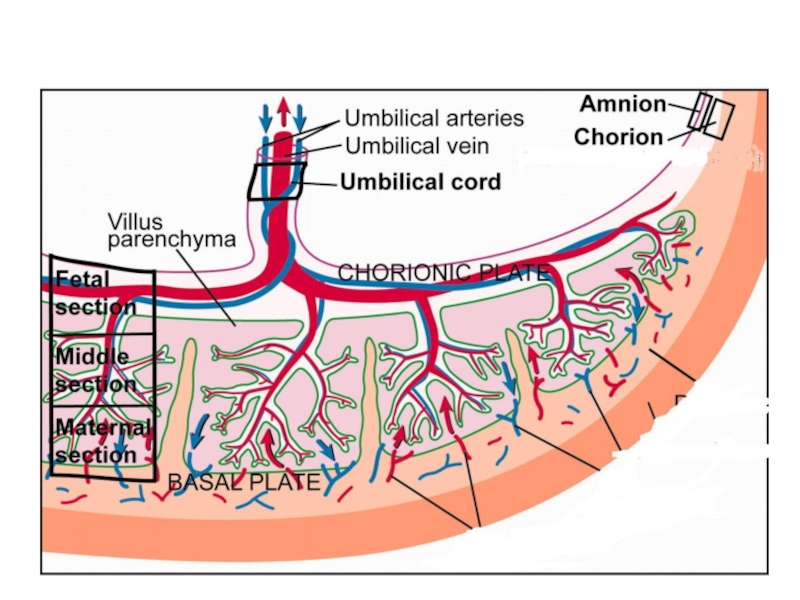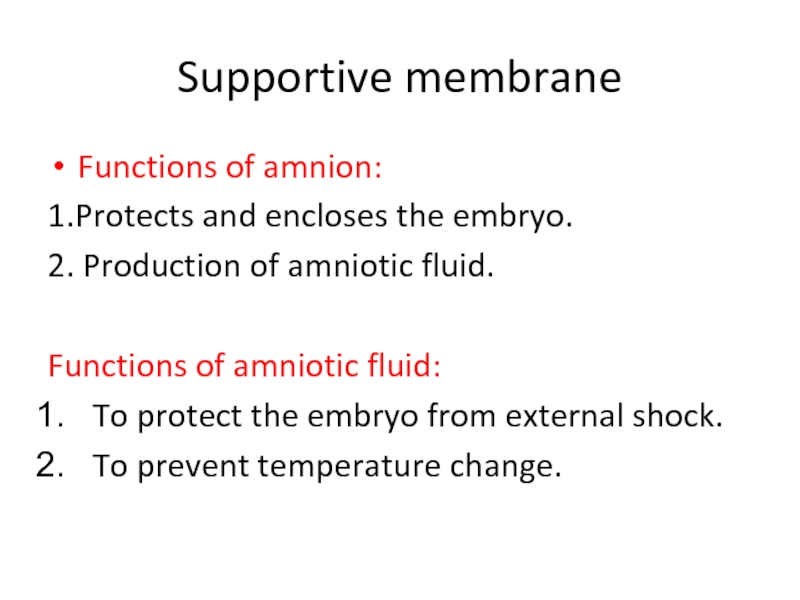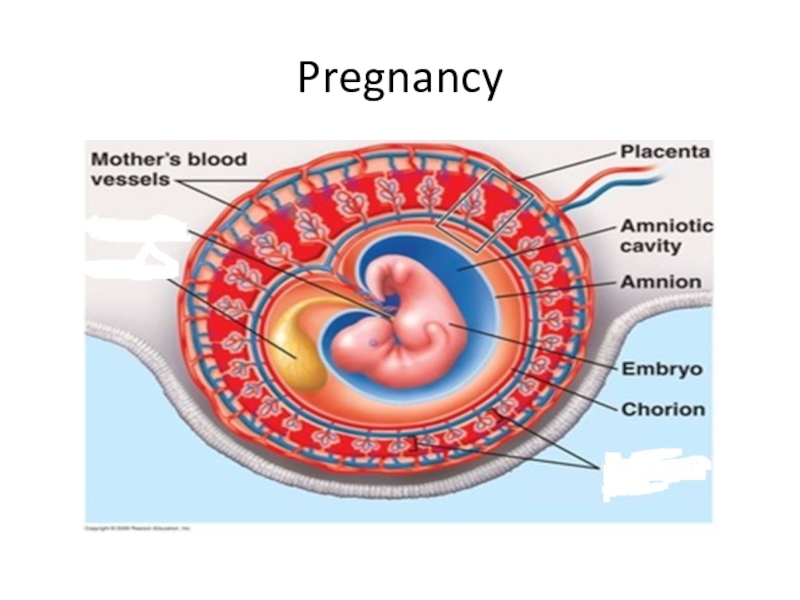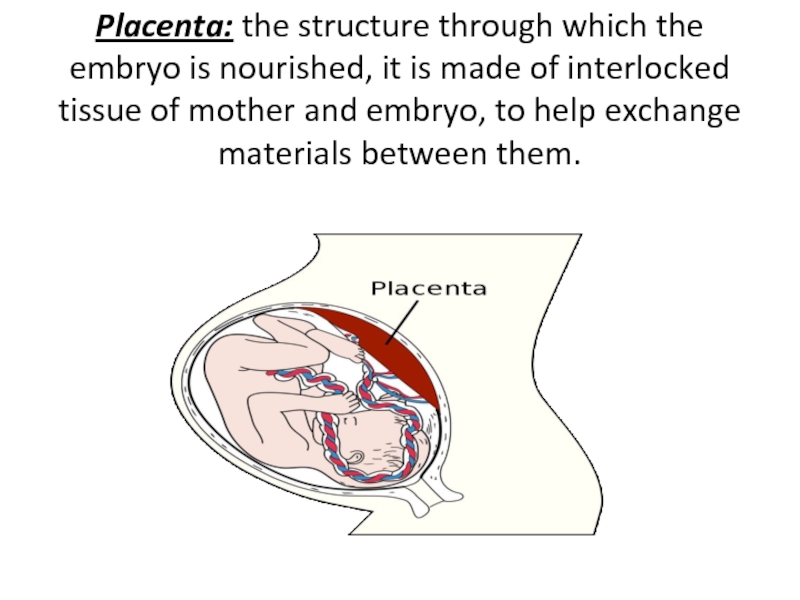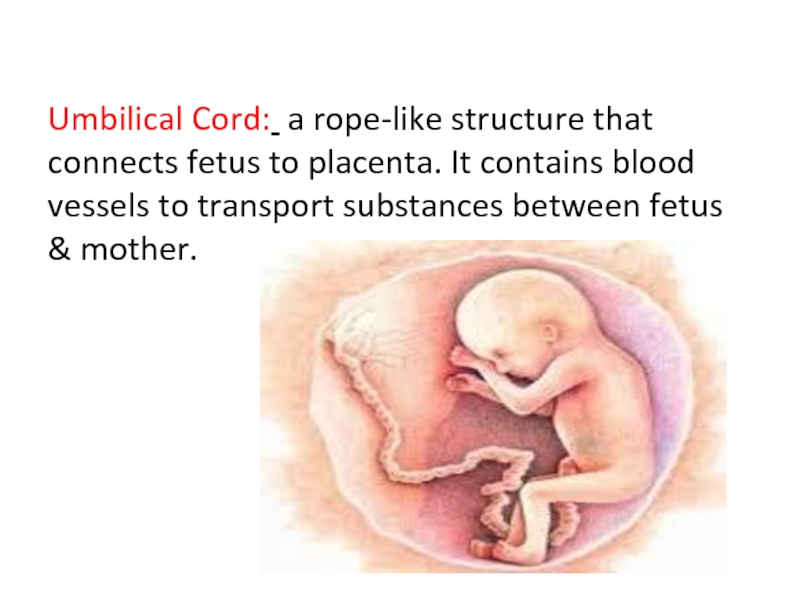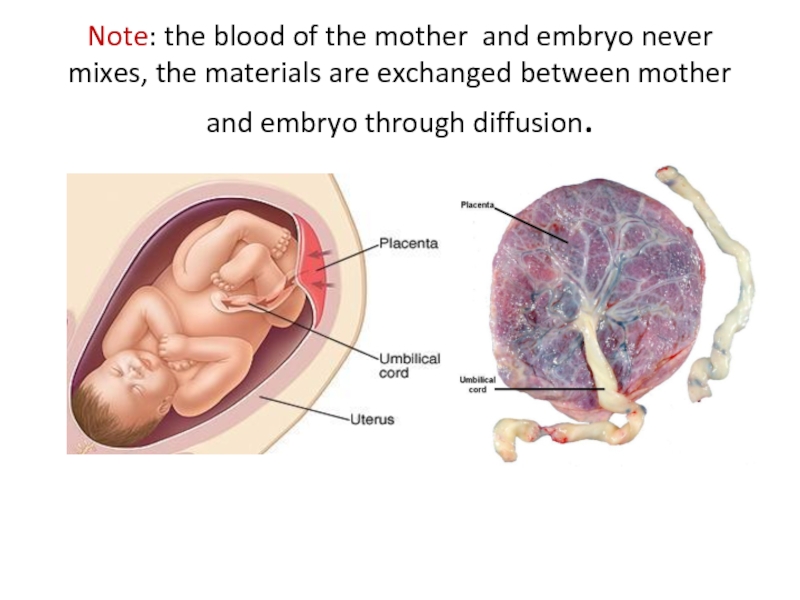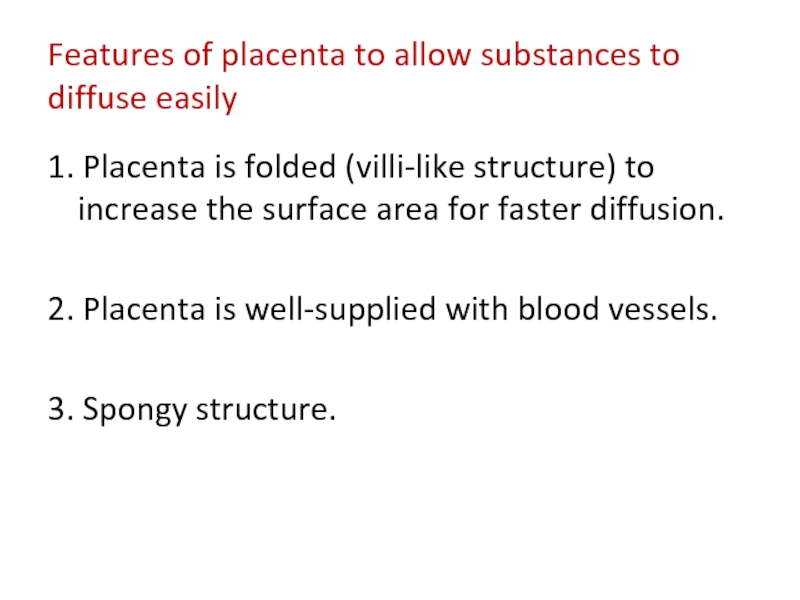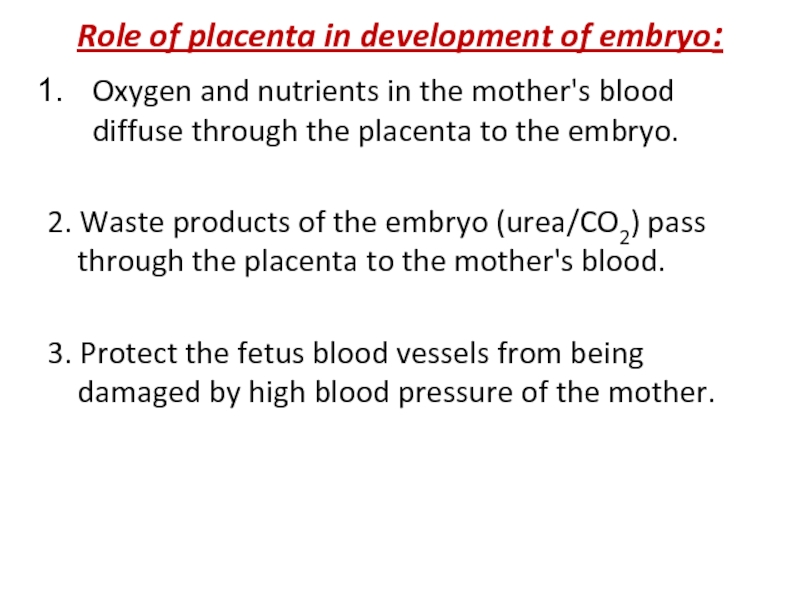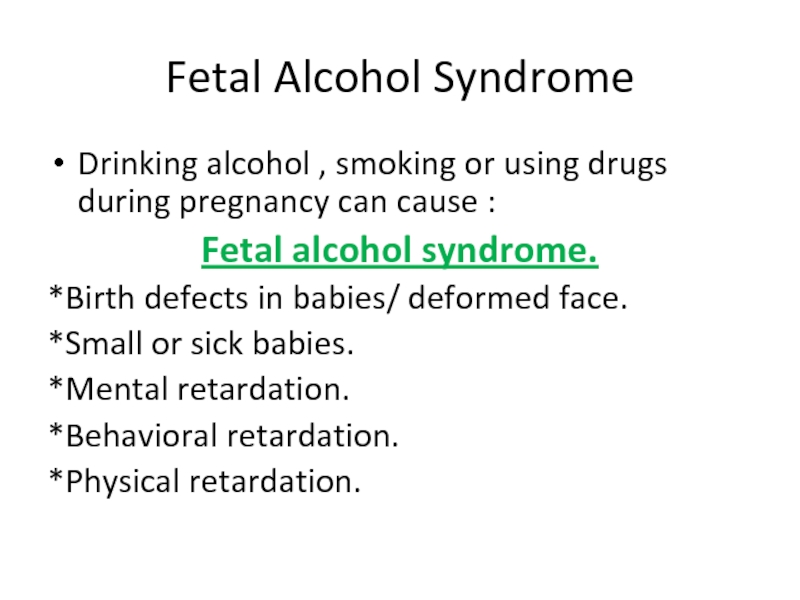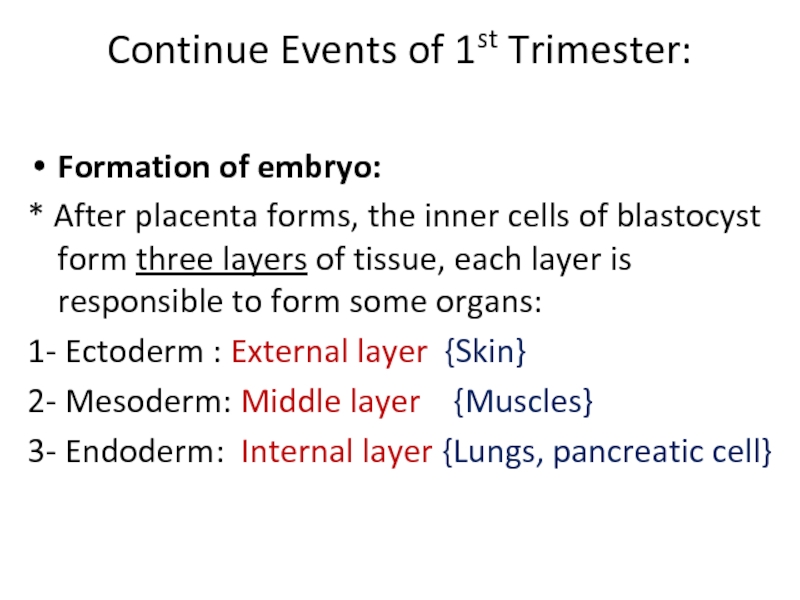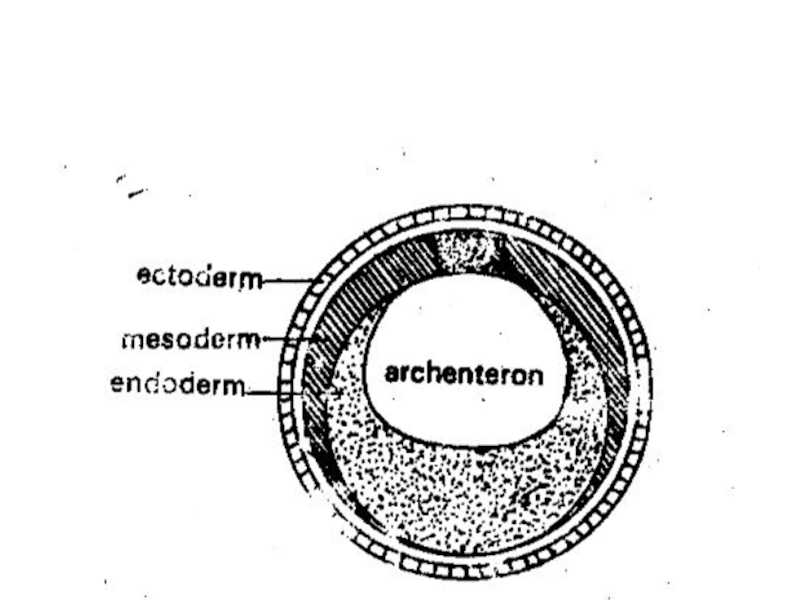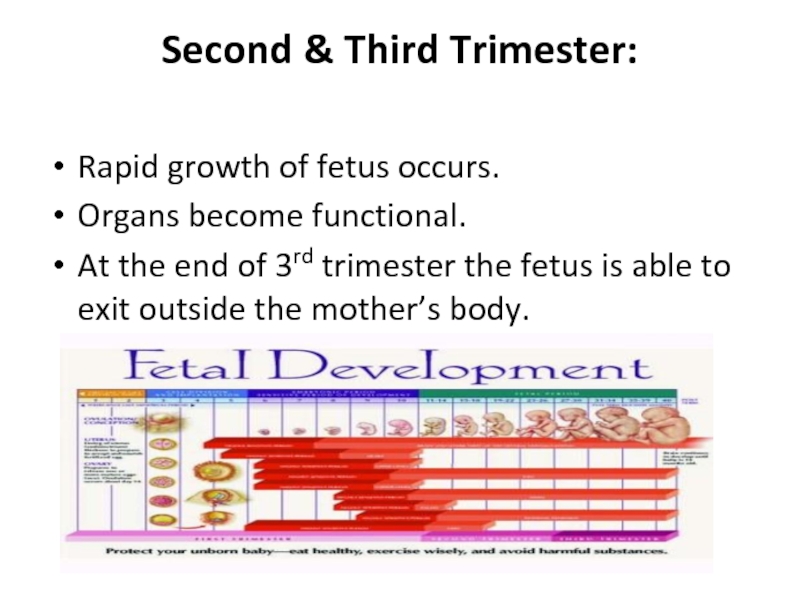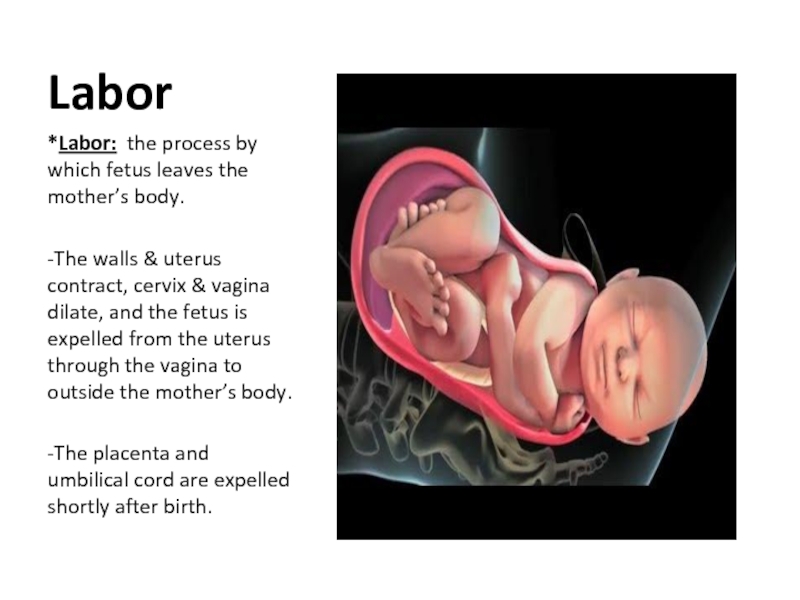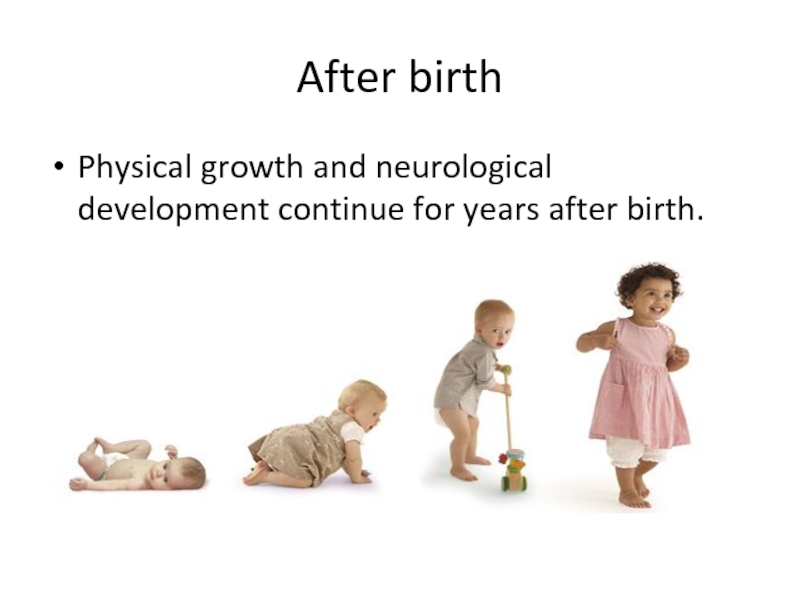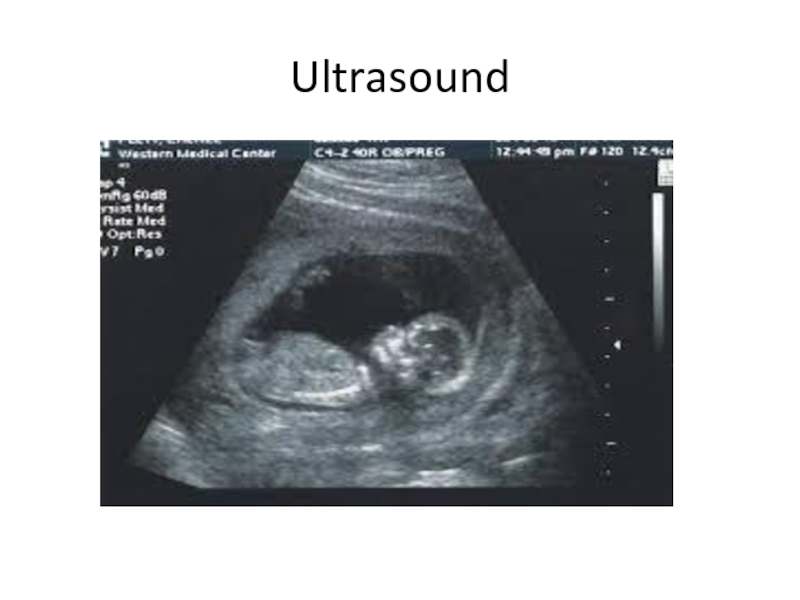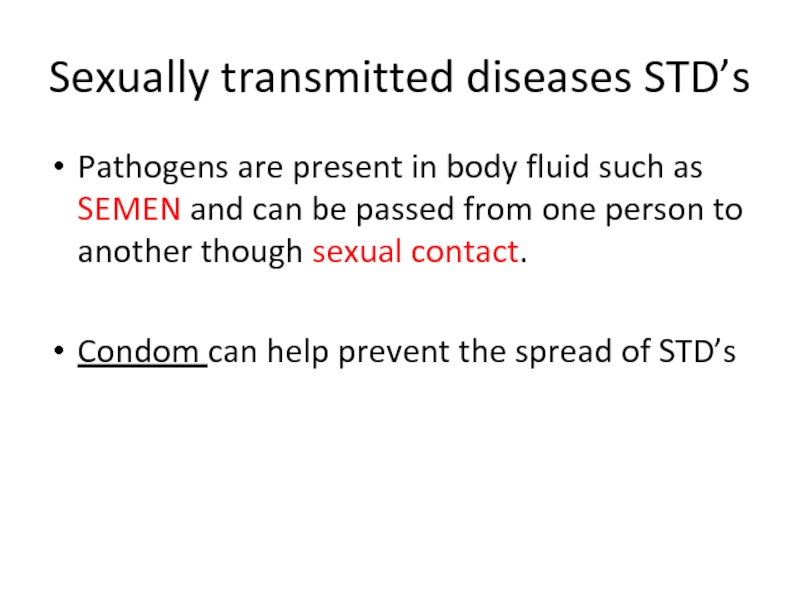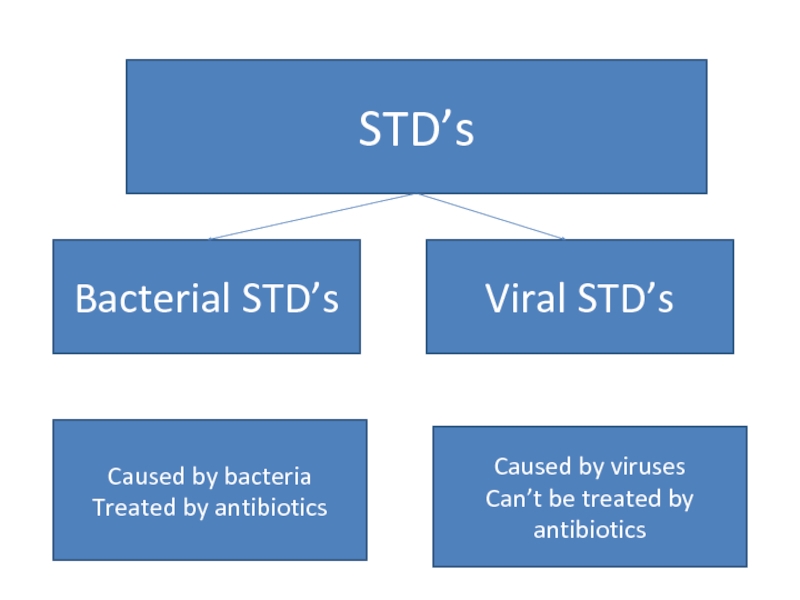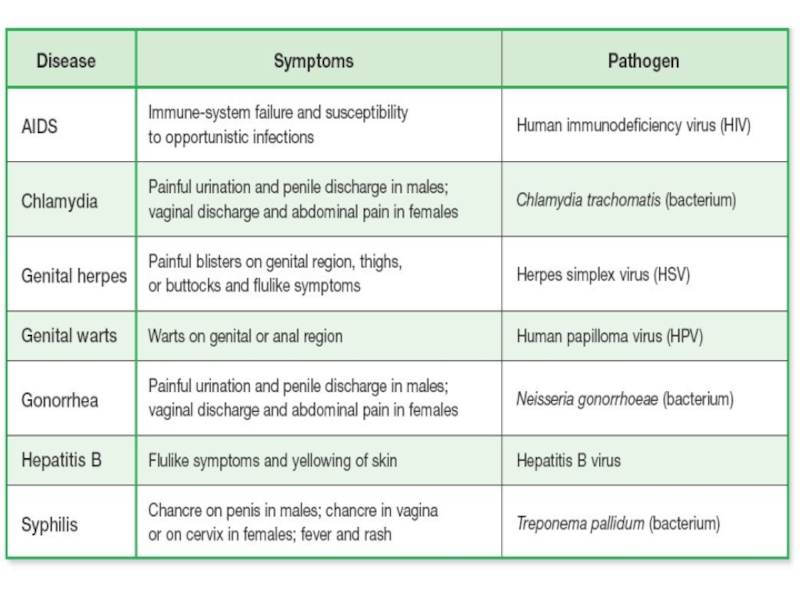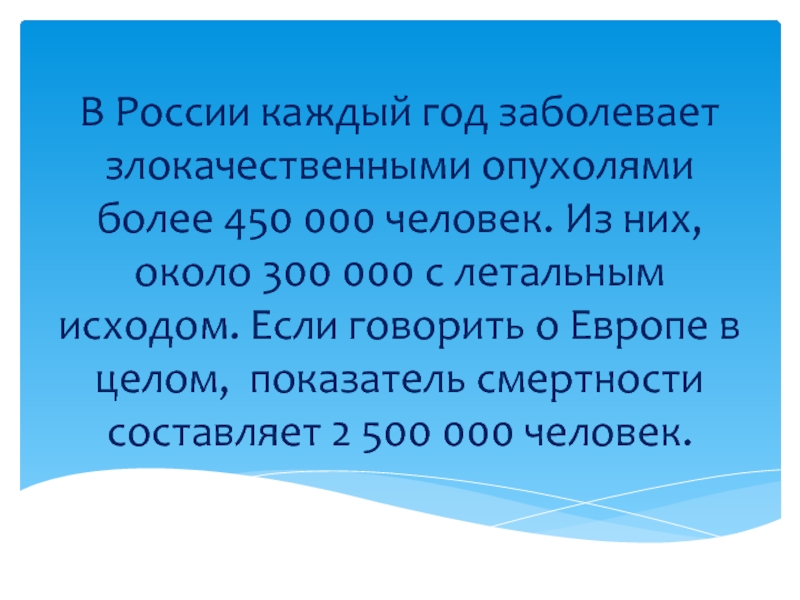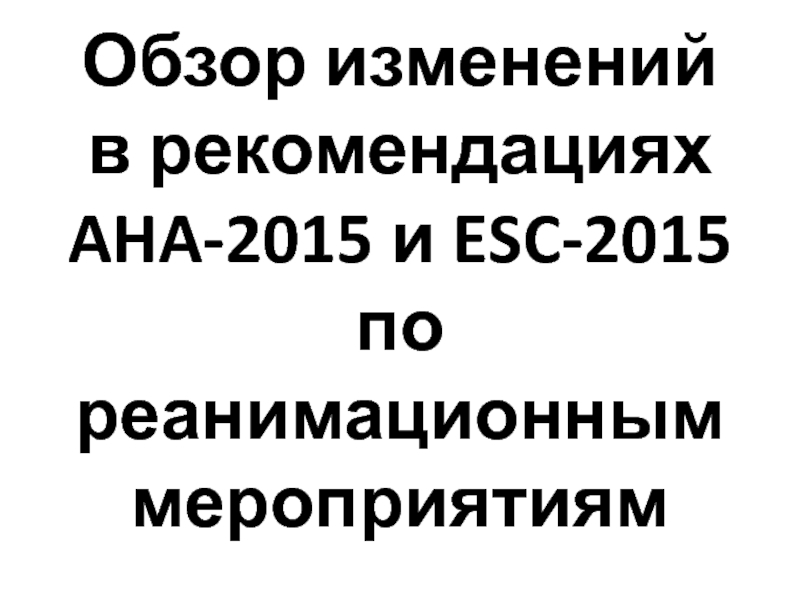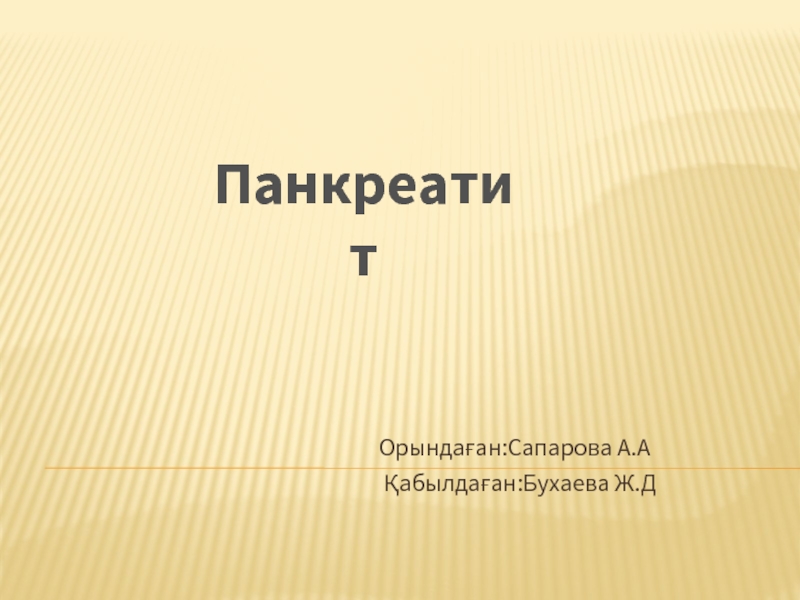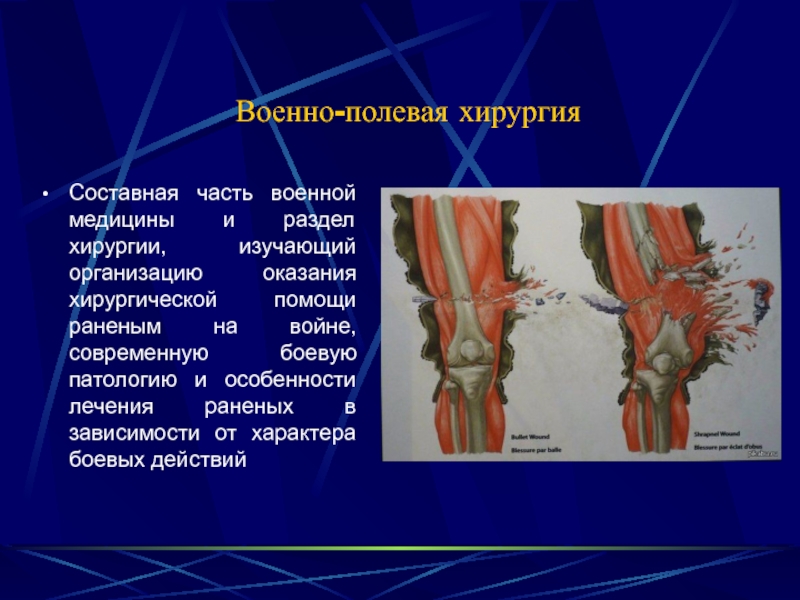- Главная
- Разное
- Дизайн
- Бизнес и предпринимательство
- Аналитика
- Образование
- Развлечения
- Красота и здоровье
- Финансы
- Государство
- Путешествия
- Спорт
- Недвижимость
- Армия
- Графика
- Культурология
- Еда и кулинария
- Лингвистика
- Английский язык
- Астрономия
- Алгебра
- Биология
- География
- Детские презентации
- Информатика
- История
- Литература
- Маркетинг
- Математика
- Медицина
- Менеджмент
- Музыка
- МХК
- Немецкий язык
- ОБЖ
- Обществознание
- Окружающий мир
- Педагогика
- Русский язык
- Технология
- Физика
- Философия
- Химия
- Шаблоны, картинки для презентаций
- Экология
- Экономика
- Юриспруденция
Female reproductive system презентация
Содержание
- 1. Female reproductive system
- 2. Female Reproductive System Sperm Smaller Little cytoplasm Motile/ move Egg Larger More cytoplasm Immotile
- 3. Female Reproductive System
- 4. Female Reproductive System
- 5. Female Reproductive System
- 6. Female Reproductive System
- 7. Female Reproductive System
- 9. Ovarian cycle Ovarian cycle: A series
- 10. Ovarian cycle
- 12. Ovarian cycle
- 13. Ovarian cycle Steps of follicular phase 1.
- 14. Ovarian cycle Steps of follicular phase 2.
- 15. Ovarian cycle Steps of follicular phase 4.
- 16. Ovarian cycle Steps of lutealphase 1- After
- 18. A ) Pituitary hormones
- 20. Menstrual cycle Menstrual Cycle: changes occur in
- 21. Menstrual cycle Events of the cycle: 1.
- 22. Menstrual cycle
- 23. Menstrual cycle Menstruation: A process when
- 24. Menopause: It is when women stop
- 25. Development Fertilization: Ovulation occurs About the same
- 26. Development The zygote is produced. zygote
- 28. Cleavage Cleavage
- 29. Development
- 31. Development - it produces many smaller cells
- 32. PREGNANCY
- 33. Pregnancy: Gestation: the period of about
- 34. Pregnancy Fetus: the developing human after week
- 35. pregnancy The 9 months of pregnancy are
- 39. Pregnancy First Trimester: the most important events
- 43. Supportive membrane Functions of amnion: 1.Protects and
- 44. Pregnancy
- 45. Placenta: the structure through which the embryo
- 46. Umbilical Cord: a rope-like
- 47. Placenta Chemicals that pass/diffuse from the mother’s
- 49. Note: the blood of the
- 51. Features of placenta to allow substances to
- 52. Role of placenta in maintaining pregnancy:
- 53. Role of placenta in development of embryo:
- 54. Fetal Alcohol Syndrome Drinking alcohol , smoking
- 55. Continue Events of 1st Trimester:
- 57. Continue Events of 1st Trimester:
- 58. Second & Third Trimester: Rapid growth
- 59. Labor *Labor: the process by which fetus
- 60. After birth Physical growth and neurological development continue for years after birth.
- 61. Ultrasound
- 62. Uses of ultrasound Indicates the fetus age.
- 63. Sexually transmitted diseases STD’s Pathogens are
- 64. STD’s Bacterial STD’s Viral STD’s Caused by
Слайд 2Female Reproductive System
Sperm
Smaller
Little cytoplasm
Motile/ move
Egg
Larger
More cytoplasm
Immotile
Слайд 9Ovarian cycle
Ovarian cycle:
A series of events by which the ovaries
Ovarian cycle:
Regulated by
Duration
Begins at
Phases
FSH From
LH pituitary
gland
Estrogen from
Progesterone ovary
28 days
Puberty
Follicular
Luteal
Слайд 13Ovarian cycle
Steps of follicular phase
1. Pituitary gland secretes FSH hormone (follicle
{ Follicle: a cluster of cells that surround an immature egg cell and provides it with nutrients.}
Слайд 14Ovarian cycle
Steps of follicular phase
2. Graafian follicle secretes estrogen hormone
3. High
Слайд 15Ovarian cycle
Steps of follicular phase
4. LH causes the egg cell to
5. Ovulation occurs when the ovum is released from the ovum to fallopian tubes
*a current of fluids sweep the egg into fallopian tube.
*help of cilia and muscle contractions of the tube moves the ovum in fallopian.
Слайд 16Ovarian cycle
Steps of lutealphase
1- After ovulation, continued secretion of LH stimulates
2- Corpus luteum secretes estrogen and progesterone which:
prevent formation of another follicle in this phase
inhibits further release of LH & FSH
3- Increasing progesterone prepare the body for fertilization:
Слайд 20Menstrual cycle
Menstrual Cycle:
changes occur in the uterus preparing it for
pregnancy
It lasts about 28 days
It is influenced by the changing levels of estrogen and progesterone in the ovarian cycle, which means it occurs at the same time.
Слайд 21Menstrual cycle
Events of the cycle:
1. before ovulation when estrogen increases
2. after ovulation when the levels of estrogen and
progesterone increase further development
occur in the uterine lining.
3. if pregnancy doesn’t occur
levels of estrogen& progesterone drops
this cause the uterine lining to shed.
marks the end of menstrual cycle.
Слайд 23Menstrual cycle
Menstruation:
A process when blood and discarded tissue
leave the
It is caused by the shedding of uterine lining.
The bleeding is due to broken blood vessels.
It occurs about 14 days after ovulation, if fertilization does not occur.
Слайд 24Menopause:
It is when women stop menstruation (or the
It happens usually between the ages of (45-55)
The women stops ovulating and no
longer can bear children.
Women may experience symptoms of menopause, like hot flashes, because the estrogen decreases.
Слайд 25Development
Fertilization:
Ovulation occurs
About the same time, sperm enter the vagina.
Sperm swim up
Sperm head penetrates the ovum
The nuclei of the ovum and sperm fuse together, this is fertilization
Слайд 26Development
The zygote is produced.
zygote is the fertilized egg or the
(the zygote is a diploid cell)
Cleavage: a series of internal divisions occur in the zygote.
Слайд 31Development
- it produces many smaller cells within the zygote (1,2,4,8.16….)
- it
- When the zygote reaches the uterus after cleavage it is called blastocyst. (which is a hollow ball of cells)
Implantation: when the blastocyst (in the uterus) is embedded in uterine lining.
further development occur eventually forming a living human (embryo) then fetus
Слайд 33Pregnancy:
Gestation: the period of about 9 months (about 40 weeks) of
Слайд 34Pregnancy
Fetus: the developing human after week 8.
Embryo: the developing human for
Слайд 35pregnancy
The 9 months of pregnancy are often divided into three trimesters,
Gestation
First trimester
{0-3} months
Second trimester
{4-6} months
Third trimester
{7-9} months
Слайд 39Pregnancy
First Trimester: the most important events of development occur.
1. The embryo
2. development of supportive membranes: that nourish and protect the embryo {will develop in the 2nd week after fertilization}.
Amnion: the Inner membrane
Chorion: the outer membrane around the embryo it interacts with the uterus lining to form the placenta.
3. Placenta is formed
Слайд 43Supportive membrane
Functions of amnion:
1.Protects and encloses the embryo.
2. Production of amniotic
Functions of amniotic fluid:
To protect the embryo from external shock.
To prevent temperature change.
Слайд 45Placenta: the structure through which the embryo is nourished, it is
Слайд 46 Umbilical Cord: a rope-like structure that connects fetus to placenta. It
Слайд 47Placenta
Chemicals that pass/diffuse from the mother’s blood stream to embryo/ fetus:
Oxygen
Nutrients
Alcohol
Drugs
pathogens
Chemicals
Wastes:
*Urea
*CO2
Слайд 49 Note: the blood of the mother and embryo never mixes, the
Слайд 51Features of placenta to allow substances to diffuse easily
1. Placenta is
2. Placenta is well-supplied with blood vessels.
3. Spongy structure.
Слайд 52Role of placenta in maintaining pregnancy:
Producing progesterone & estrogen to: *prevent
*maintain a thick endometrium.
2. Prepare mammary glands.
3. Prepare the mother’s body for labor.
Слайд 53Role of placenta in development of embryo:
Oxygen and nutrients in the
2. Waste products of the embryo (urea/CO2) pass through the placenta to the mother's blood.
3. Protect the fetus blood vessels from being damaged by high blood pressure of the mother.
Слайд 54Fetal Alcohol Syndrome
Drinking alcohol , smoking or using drugs during pregnancy
Fetal alcohol syndrome.
*Birth defects in babies/ deformed face.
*Small or sick babies.
*Mental retardation.
*Behavioral retardation.
*Physical retardation.
Слайд 55Continue Events of 1st Trimester:
Formation of embryo:
* After placenta forms,
1- Ectoderm : External layer {Skin}
2- Mesoderm: Middle layer {Muscles}
3- Endoderm: Internal layer {Lungs, pancreatic cell}
Слайд 57Continue Events of 1st Trimester:
*3rd week of pregnancy: 2 mm,
*4th week of pregnancy: - Arms & legs form.
- Major organs form.
- Heart starts beating.
*8th week: all major organs form
* At the end of first trimester :the sex of the baby can be distinguished.
Слайд 58Second & Third Trimester:
Rapid growth of fetus occurs.
Organs become functional.
At the
Слайд 59Labor
*Labor: the process by which fetus leaves the mother’s body.
-The walls
-The placenta and umbilical cord are expelled shortly after birth.
Слайд 62Uses of ultrasound
Indicates the fetus age.
Indicate the health of the fetus.
Diagnose
The BIGGEST advantage is its SAFETY
Слайд 63Sexually transmitted diseases STD’s
Pathogens are present in body fluid such
Condom can help prevent the spread of STD’s
